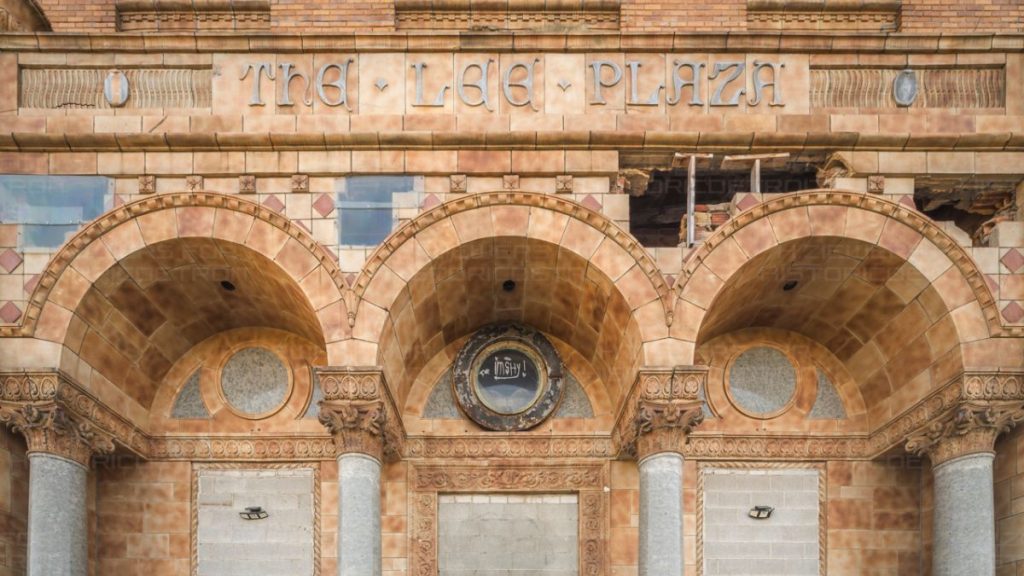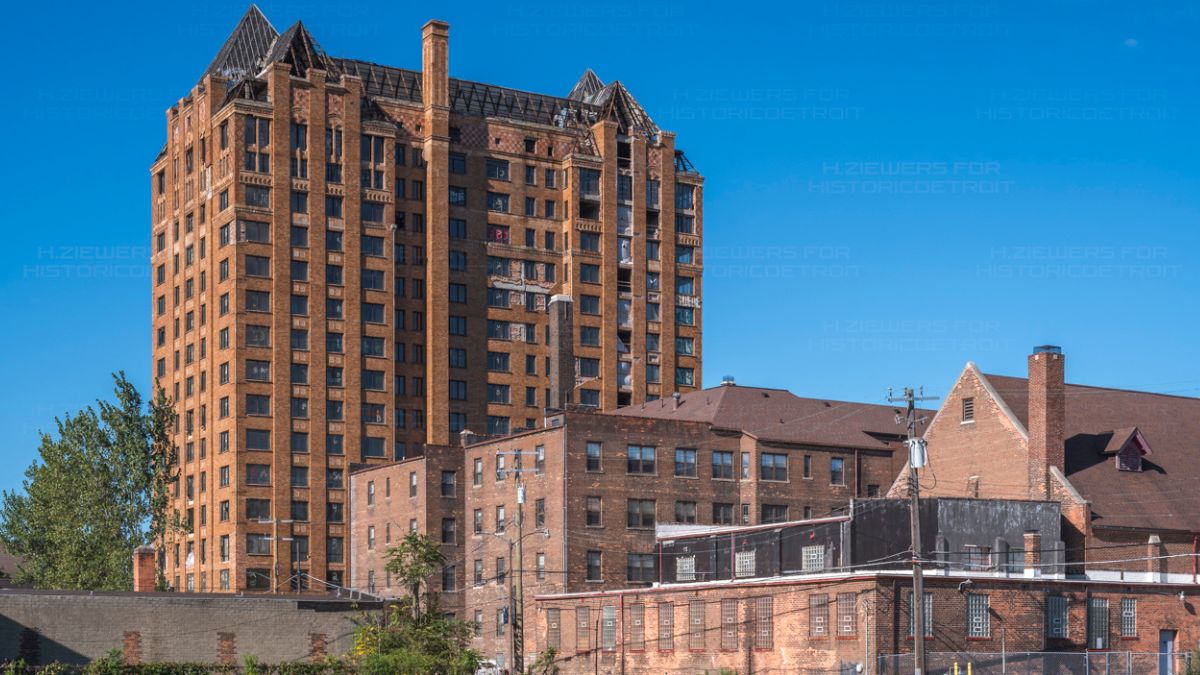Detroit reached a milestone on May 13, 2025, as city officials and partners broke ground on the long-empty Lee Plaza, which will be redeveloped as affordable senior housing. This $60 million restoration will restore the 15-story Art Deco landmark by late 2026.
Highlights
- 117 affordable apartments are being built for income-qualified seniors in a renovated Art Deco tower.
- $60 million investment by The Roxbury Group, Ethos Development Partners, and Lighthouse.
- Completion date planned for fall 2026, maintaining Detroit’s architectural heritage.
Groundbreaking Ceremony Ushers in a New Chapter
A ceremonial groundbreaking was held on Tuesday, May 13, 2025, with Mayor Mike Duggan and senior developers. The ceremony brought more than 100 civic and community leaders to the foot of the 15-story tower at West Grand Boulevard.
David Di Rita of The Roxbury Group characterized the day as “the culmination of a seven-year effort” in collaboration with Ethos Development and Lighthouse. He further added, “I grew up here in the ’60s and was here when the lights went out in the ’80s and ’90s,” highlighting the project’s significance.
Mayor Duggan referred to the project as “a model for revitalizing historic architecture and promoting inclusive housing.” The event was not only a preservation win but also a mutual hope for a reimagined future through inclusive amenities, outreach, and restored civic pride.
Transforming Urban Decay into Opportunity for Community

Empty for close to 30 years, Lee Plaza long represented decline along Detroit’s historic Gold Coast. Instead of being torn down, the building, closed since 1997, will be converted into a residential asset for the community.
The project team finalized funding last week, tapping American Rescue Plan Act funds and Michigan State Housing Development Authority grants during the groundbreaking. Other historic and low-income housing tax credits from JPMorgan Chase and Royal Bank of Canada assisted in securing the $60 million package.
Lee Plaza’s second phase aims for as many as 65 additional apartments, subject to final financing, to meet additional senior housing requirements. Rents begin at a minimum of $450 per month, intended to remain affordable for qualifying senior residents.
Architectural Significance of Lee Plaza
Opened in 1927 and named after its developer, Ralph T. Lee, Lee Plaza was one of the best residential hotels in Detroit during its day. The 15-story “I-plan” building has orange glazed brick, terra-cotta decoration, and a former lush first‑floor lobby called “Peacock Alley.”
Placed in the National Register of Historic Places in 1981, the building’s Art Deco façade and interior details will be completely restored under the redevelopment plan. Preservation experts will repair cornices, spandrel plaques, and historic wood-paneled lounges.
Worthy of note, the terra-cotta lion heads stolen two decades ago will be replicated as a means of retaining a signature decorative element of the original design.
Economic Benefits and Social Renewal
The $60 million project is being financed through a public-private partnership with the City of Detroit and the Michigan State Housing Development Authority. It is projected to generate 150 construction positions and 15 permanent jobs for building management and services.
Materials and services will be sourced locally to support the neighborhood economy in the Gold Coast neighborhood. Vertical scaffolding and window restoration will proceed as work begins this summer, with full envelope enclosure targeted for winter 2025.
The nearby Casa de Carnaval cultural center will serve as a year-round space for arts and education. Affordable housing for seniors in Lee Plaza addresses growing needs while preserving a landmark of Detroit’s resilience.
In addition to renovation, the project is an economic catalyst, creating construction and operating jobs while stimulating local businesses. Training programs and local workforce development will promise long-term dividends, reinforcing Detroit’s economic resilience far into the future.
The redevelopment of Lee Plaza strikes a balance between preservation of heritage and community demand, aiming to provide affordable housing while supporting neighborhood revitalization. Restoration of the landmark by late 2026 will be a testament to Detroit’s vision and determination.












